You need an account to access this content
Create a free account and get access to all downloads and more!
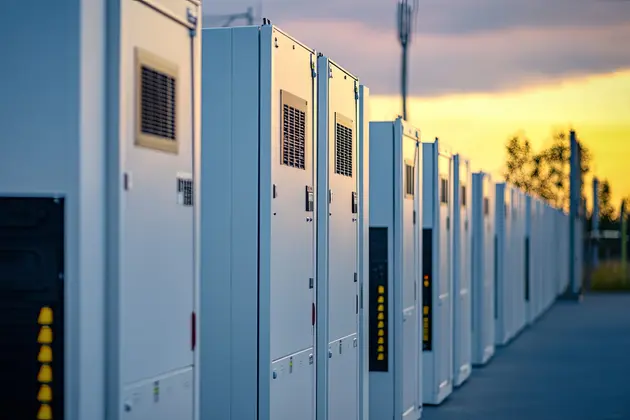
Foundations
7 Nov 2025
5 min read
As demand for reliable and sustainable energy grows, Battery Energy Storage Systems (BESS) are becoming a fundamental part of modern power solutions. By storing energy and making it available exactly when it is needed, BESS increase flexibility, improves efficiency, and supports the integration of renewable energy sources.
What is a Battery Energy Storage System?
A Battery Energy Storage System stores energy in rechargeable batteries and releases it when required. Energy can be captured from renewable sources such as solar or wind, from the grid during off-peak hours, or from generators.
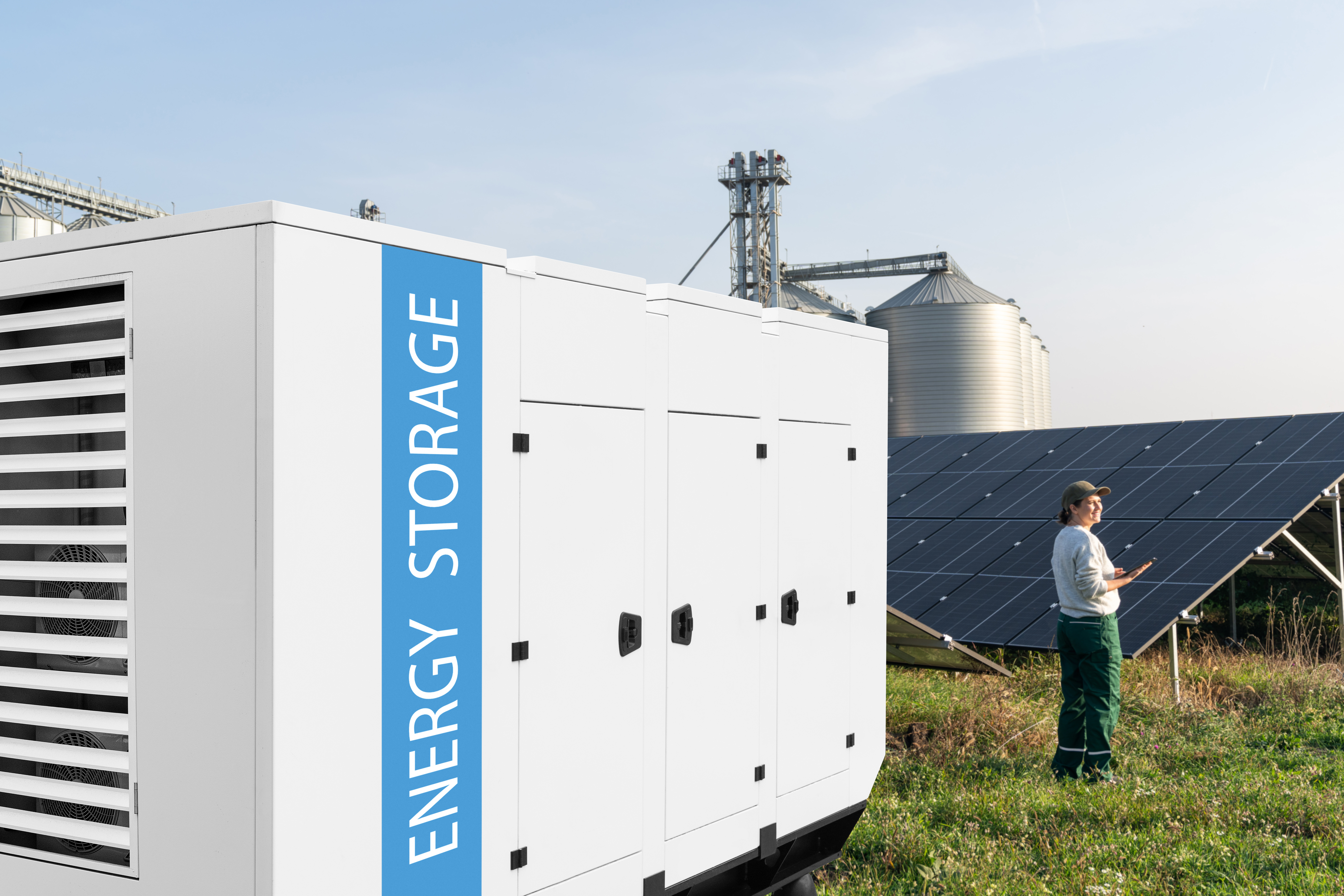
A complete BESS consists of:
Together, these elements ensure energy is stored and delivered safely, efficiently, and reliably.
Battery Energy Storage Systems provide real-time flexibility by storing energy when supply exceeds demand and releasing it when demand rises. This ability to smooth fluctuations ensures grid stability and reliable power quality, even during peak usage or when renewable energy output is variable. BESS also help reduce the need for expensive infrastructure upgrades by supporting the grid during critical moments.
A key advantage of BESS is its ability to provide uninterrupted power during outages. In the event of a grid failure or disruption, the batteries can immediately deliver energy to keep critical systems online. Unlike traditional backup generators that take time to start, BESS respond within milliseconds, ensuring a continuous power supply and reducing the risk of costly downtime.
Renewable energy sources like solar and wind are intermittent, often producing power when it is not immediately needed. BESS bridge this gap by storing surplus renewable energy and releasing it later when demand is higher or generation is lower. This maximises the use of clean energy, reduces curtailment, and allows for a higher share of renewables in the energy mix.
When integrated with generators, BESS help balance loads more efficiently. The batteries can handle short bursts of demand, allowing generators to operate at their optimal efficiency point instead of ramping up and down. This reduces wear and tear on equipment, cuts fuel consumption, and lowers overall operating costs while maintaining a reliable power supply.
By reducing reliance on fossil fuel-based generation and enabling greater use of renewables, BESS directly contribute to lower greenhouse gas emissions. The improved efficiency achieved by combining batteries with generators further minimises fuel use and associated emissions. As organisations and industries aim to meet stricter sustainability targets, BESS provide a proven and scalable pathway toward cleaner, more sustainable energy systems.
BESS stabilise frequency and voltage, smooth renewable generation, and shift energy to when it’s needed most. They can replace spinning reserves, provide black-start capability, and reduce diesel runtime, making microgrids more resilient, efficient, and sustainable. BESS can be used to store excess solar or wind energy and release it when demand is higher. They help stabilise output, reduce curtailment, and provide ancillary services, increasing project reliability and maximising returns from renewable assets.
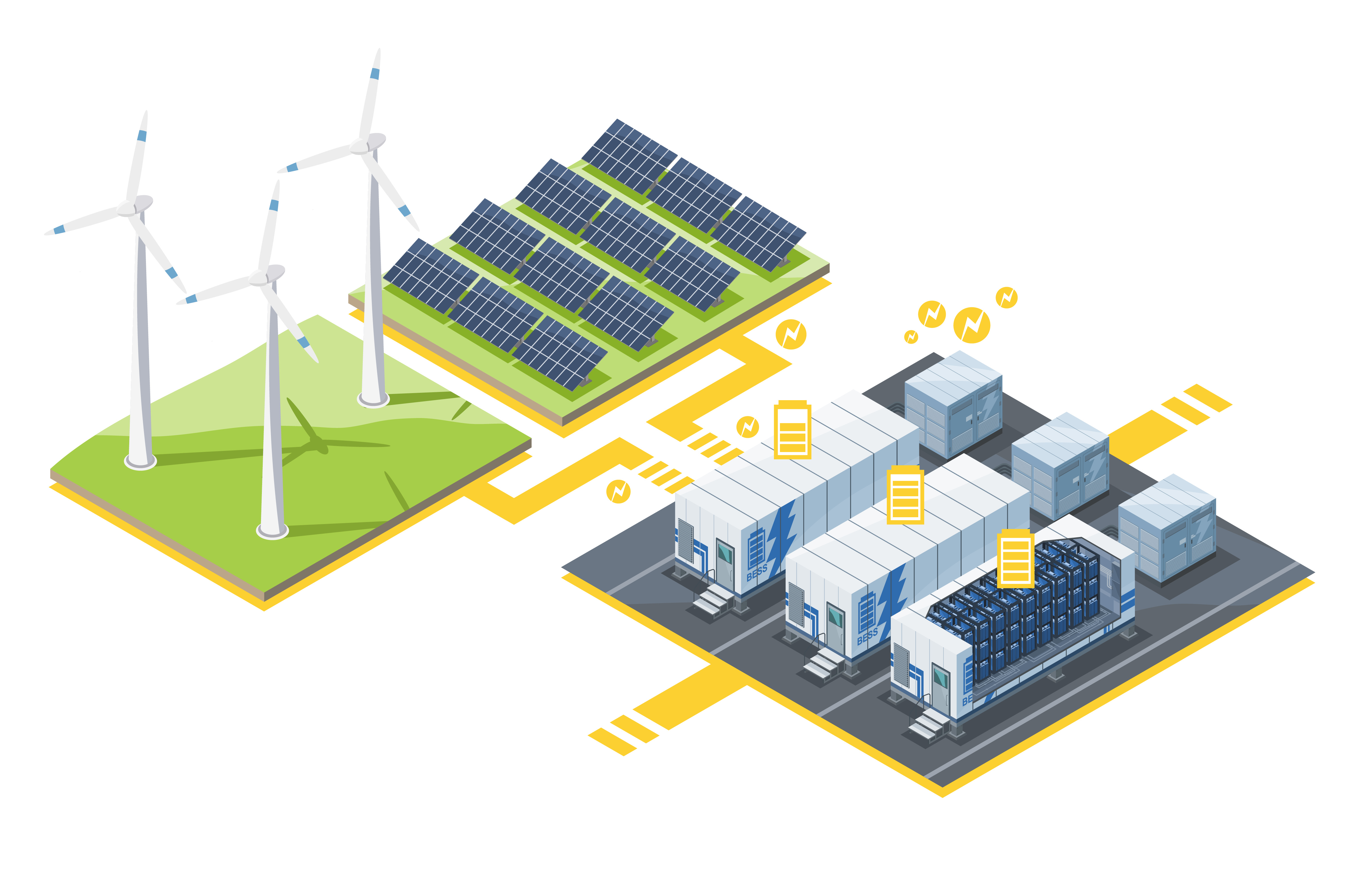
At business sites, BESS reduce energy costs through peak shaving, load shifting, and demand-charge management. They also deliver backup power and smooth out grid disturbances, ensuring efficient, reliable, and cost-effective operations.

BESS extend the role of uninterruptible power supplies by providing longer ride-through, seamless transitions to gensets, and black-start capability. This safeguards uptime for mission-critical systems while also opening opportunities to support the wider grid.

Battery Energy Storage Systems deliver the most value when they are controlled effectively. A reliable control system ensures the batteries charge and discharge at the right time, integrate seamlessly with other power sources, and respond instantly to changes in demand. Without intelligent control, the potential of BESS to stabilise grids, reduce costs, and enable renewable integration cannot be fully realised.
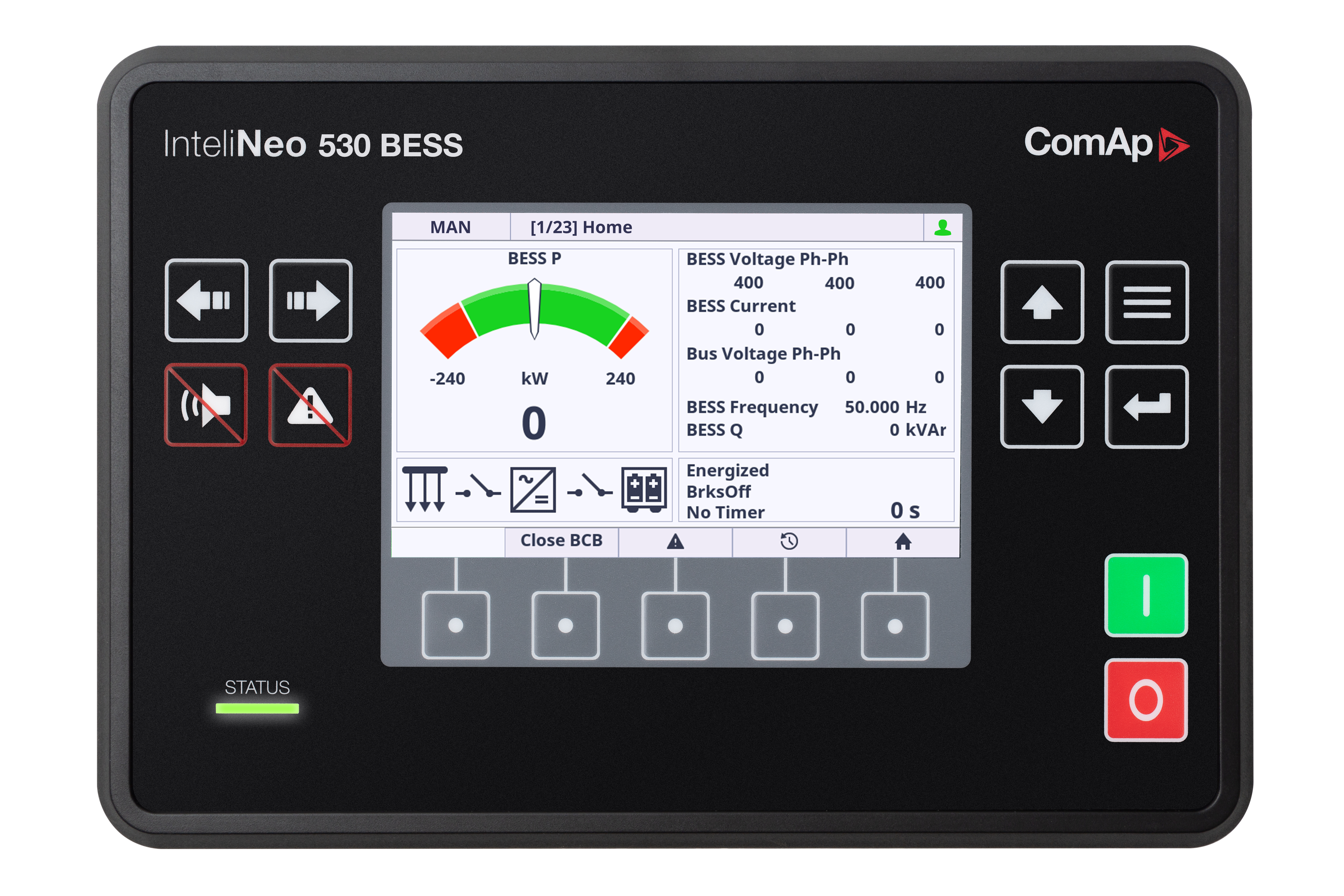-(1).png)
ComAp’s dedicated BESS control solution, the InteliNeo 530 BESS, is designed to make the complexity of battery energy storage systems simple. The controller manages energy flows in real time, optimising battery performance and supporting applications such as peak shaving, grid stability, and black-start capability. With open communication protocols and flexible configurations, it integrates easily with gensets, renewables, and other power assets across a wide variety of off-grid and grid-connected sites. This gives operators the confidence that their BESS is operating safely and efficiently and delivering maximum benefit to their power system.
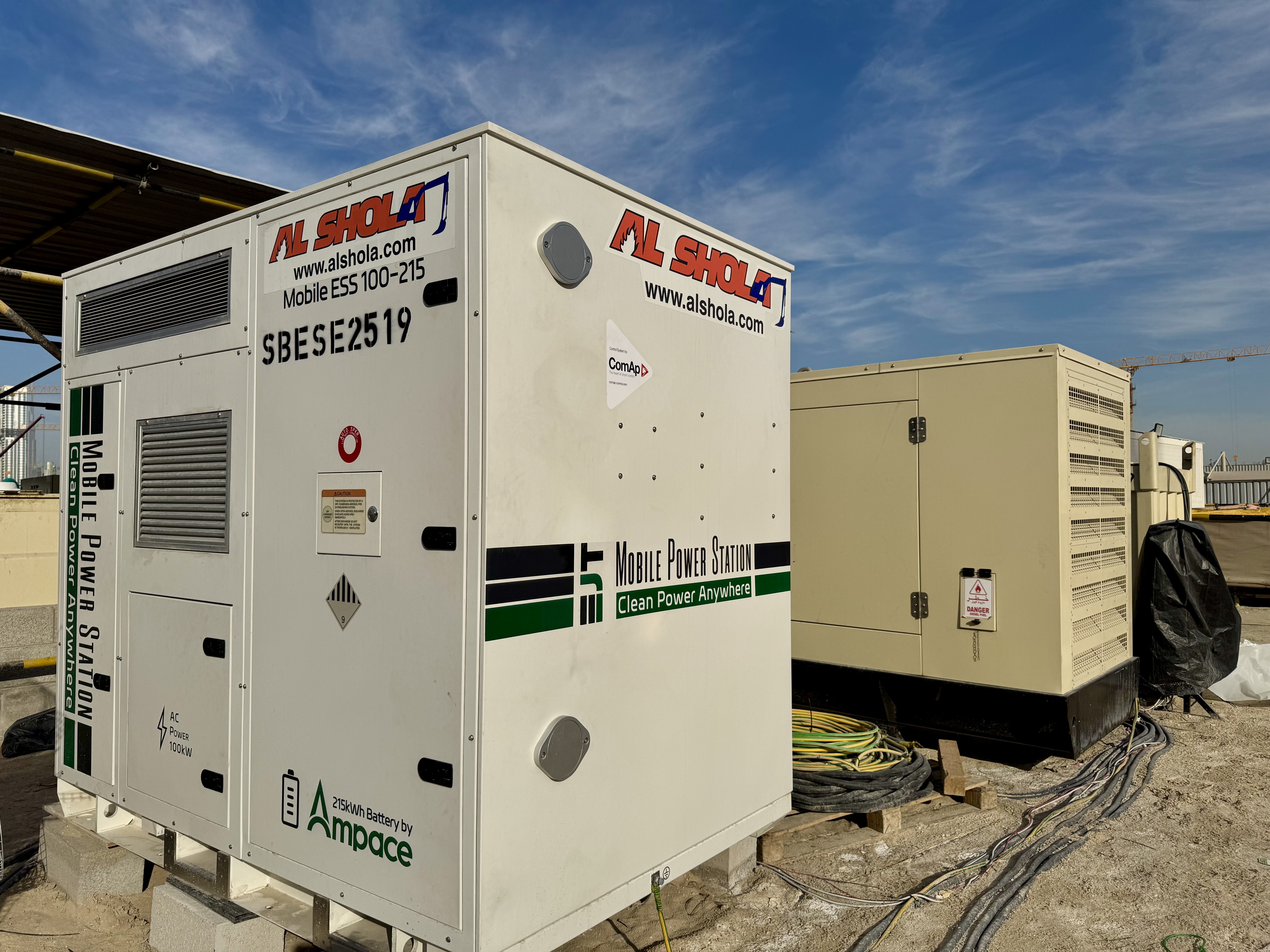
In partnership with EJT New Energy, ComAp delivered a Battery Energy Storage System (BESS) for Al Shola Transportation Co. in Dubai, supporting the integration of imported battery packages with the company’s existing diesel gensets. Using the InteliNeo 530 BESS controller, the project enabled seamless operation between the Battery Management System (BMS), Power Conversion System (PCS), and auxiliary systems, ensuring safe and efficient hybridisation. ComAp also provided design consultation, wiring customisation, and interface reviews, while integrating the system with its WebSupervisor platform for both local and remote monitoring. This collaboration helped Al Shola take a forward-looking step in the UAE’s rental power market by combining conventional and battery technologies.
Read the full case study here
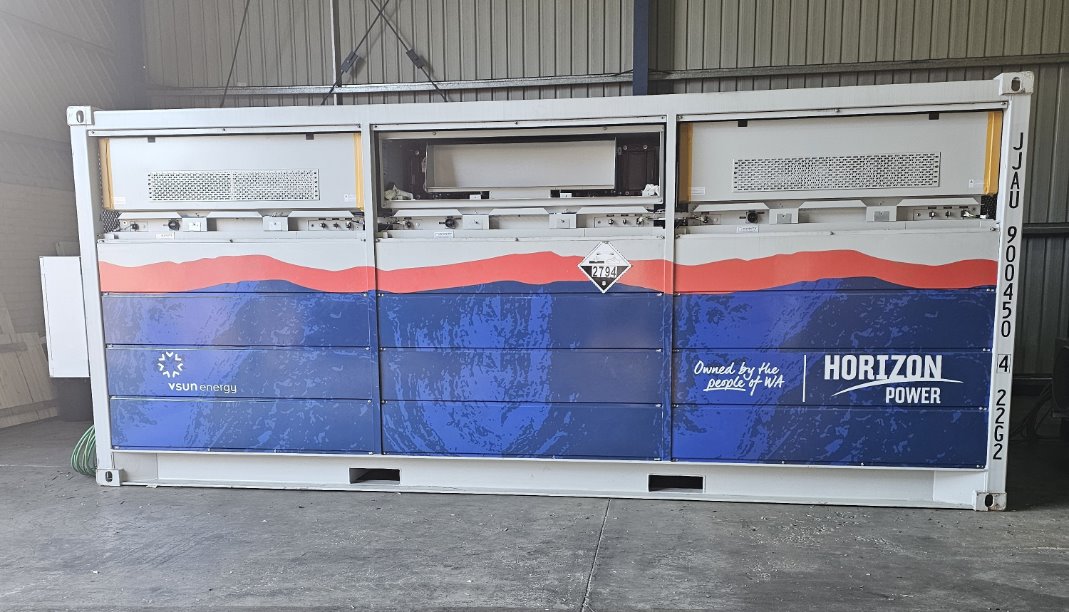
ComAp collaborated with Horizon Power, Western Australia’s regional and remote energy provider, to deliver a control solution for a trial battery energy storage project using the VSUN Invinity Vanadium Redox Flow Battery. Central to the project was the InteliNeo 530 BESS controller, which integrated the battery with the Delta PCS inverter and balance-of-plant systems, enabling the BESS to operate as a single, coordinated unit. ComAp Australia provided a fully engineered solution — from configuration and drawings to testing, commissioning, and training. With the InteliNeo 530 BESS controller in place, the system now runs autonomously on-grid, sequencing operations, managing state of charge, and maintaining stability with minimal operator involvement, validating the controller’s capability for long-duration storage applications in remote networks.
Read the full case study here
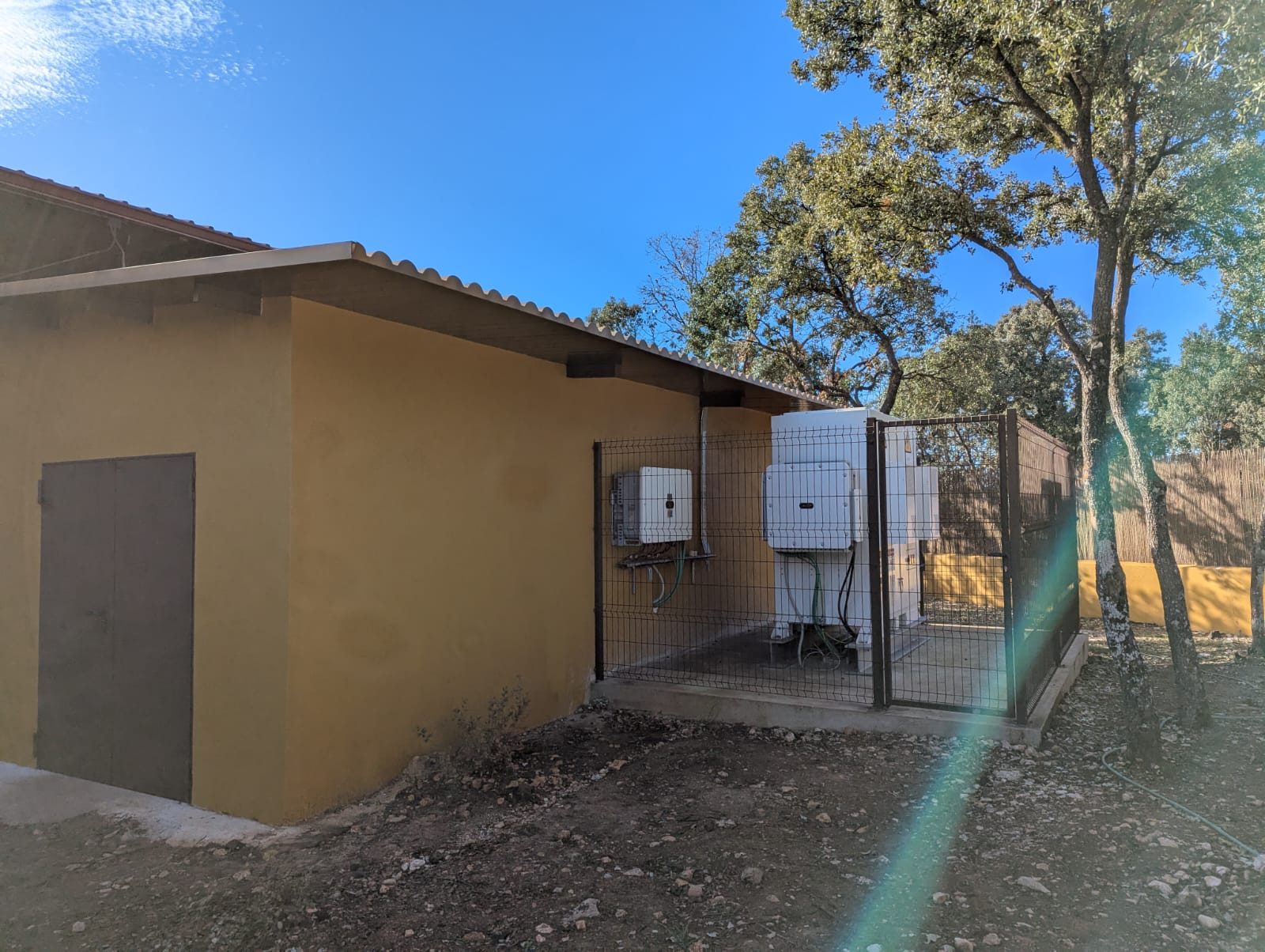
ComAp partnered with Veolia Solar España to deliver a fully integrated hybrid control solution for an off-grid horse-riding facility, ensuring reliable operation of the customer’s solar PV, battery storage, and diesel generation assets. Previous integration attempts with a third-party energy management system had failed, leaving the site vulnerable to blackouts and inefficiencies. Working with Veolia, ComAp implemented a new control system featuring the InteliNeo 5500 microgrid controller and the InteliGen 500 G2 paralleling controller, enabling seamless coordination between a Hyundai 32 kVA genset, a 110 kWp Huawei PV system, and a 100 kWh Huawei LUNA 2000 BESS. The solution created a stable and resilient off-grid power supply, improved efficiency, reduced fuel consumption and emissions, prevented blackouts, and proved to be 30% more cost-effective than the customer’s previous setup.
Read the full case study here
Battery Energy Storage Systems (BESS) are a vital part of building smarter, more resilient, and more sustainable energy systems. With the help of intelligent control solutions, such as those offered by ComAp, it is possible to unlock the full potential of BESS across the entire energy value chain, ensuring reliable performance, optimised efficiency, and seamless integration with other power sources. By improving power quality and reducing reliance on fossil fuels, BESS also contribute directly to cost savings and lower emissions.